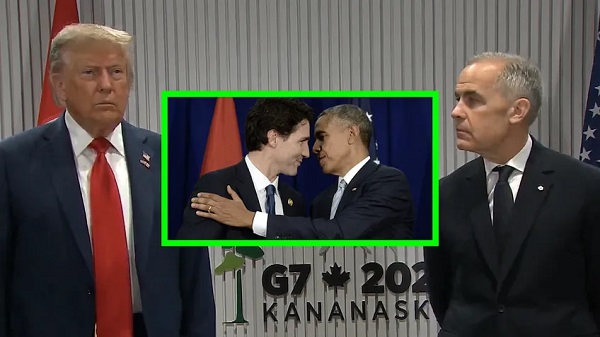Uncategorized
Changing story again, Saudi Arabia says killing was planned

RIYADH, Saudi Arabia — Saudi prosecutors say the killing of journalist Jamal Khashoggi was planned, state-run media reported Thursday, reflecting yet another change in the shifting Saudi Arabian account of what happened to the writer who was killed by Saudi officials in their Istanbul consulate.
Saudi Attorney General Saud al-Mojeb said investigators concluded that Khashoggi’s killing was a premeditated crime after reviewing evidence presented by Turkish officials as part of a joint investigation, according to a statement on the state-run Saudi Press Agency.
Saudi Arabia initially insisted Khashoggi had walked out of the consulate after visiting the building on Oct. 2. It later dropped that account for a new one, saying it had detained 18 people for what it said was an accidental killing during a “fistfight.”
Many countries responded to the version of a brawl involving Khashoggi with skepticism and demands for transparency. Turkey has been turning up the pressure on Saudi Arabia, a regional rival, to reveal more about the crime.
The seemingly clumsy
“Jamal Khashoggi’s body still hasn’t been found. Where is it?” Turkey’s foreign minister, Mevlut Cavusoglu, said Thursday at a news conference with his Palestinian counterpart.
“There is a crime here, but there is also a humanitarian situation. The family wants to know and they want to perform their last duty,” Cavusoglu said, referring to hopes for the writer’s burial.
Turkish authorities briefed visiting CIA chief Gina Haspel on the investigation into the killing and the evidence they have, a Turkish security official who was not authorized to speak to the media said on condition of anonymity. The official could not confirm whether Haspel had listened to an alleged audio recording of the killing. Pro-government media in Turkey reported officials have such a recording, but its existence has not been confirmed.
On Thursday, conflicting reports surfaced about whether investigators had searched a well in the garden of Saudi Arabia’s consulate as part of their probe.
Investigators emptied the well and are awaiting the results of an analysis of the water to determine whether body parts were dumped there, according to Yeni Safak, a pro-government Turkish newspaper. But Sabah, another pro-government newspaper that has published leaks about the case from Turkish officials, said Saudi Arabia has yet to give Turkish authorities permission for a search.
Turkish media have also published a security camera image allegedly showing a vehicle belonging to the Saudi Consulate “scouting” a forest in the outskirts of Istanbul before Khashoggi was killed. The image, obtained by state television TRT and other media on Wednesday, shows a black car with a diplomatic license plate at an entrance to Belgrade Forest.
Turkish President Recep Tayyip Erdogan has said Saudi officials made “reconnaissance” trips to the forest as well as the city of Yalova a day before Khashoggi was killed. Turkish officials have told The Associated Press that investigators were looking into the possibility that the journalist’s remains may have been hidden at those two locations.
___
Torchia reported from Istanbul and Fraser reported from Ankara, Turkey.
Aya Batrawy, Christopher Torchia And Suzan Fraser, The Associated Press
Uncategorized
Kananaskis G7 meeting the right setting for U.S. and Canada to reassert energy ties


Energy security, resilience and affordability have long been protected by a continentally integrated energy sector.
The G7 summit in Kananaskis, Alberta, offers a key platform to reassert how North American energy cooperation has made the U.S. and Canada stronger, according to a joint statement from The Heritage Foundation, the foremost American conservative think tank, and MEI, a pan-Canadian research and educational policy organization.
“Energy cooperation between Canada, Mexico and the United States is vital for the Western World’s energy security,” says Diana Furchtgott-Roth, director of the Center for Energy, Climate and Environment and the Herbert and Joyce Morgan Fellow at the Heritage Foundation, and one of America’s most prominent energy experts. “Both President Trump and Prime Minister Carney share energy as a key priority for their respective administrations.
She added, “The G7 should embrace energy abundance by cooperating and committing to a rapid expansion of energy infrastructure. Members should commit to streamlined permitting, including a one-stop shop permitting and environmental review process, to unleash the capital investment necessary to make energy abundance a reality.”
North America’s energy industry is continentally integrated, benefitting from a blend of U.S. light crude oil and Mexican and Canadian heavy crude oil that keeps the continent’s refineries running smoothly.
Each day, Canada exports 2.8 million barrels of oil to the United States.
These get refined into gasoline, diesel and other higher value-added products that furnish the U.S. market with reliable and affordable energy, as well as exported to other countries, including some 780,000 barrels per day of finished products that get exported to Canada and 1.08 million barrels per day to Mexico.
A similar situation occurs with natural gas, where Canada ships 8.7 billion cubic feet of natural gas per day to the United States through a continental network of pipelines.
This gets consumed by U.S. households, as well as transformed into liquefied natural gas products, of which the United States exports 11.5 billion cubic feet per day, mostly from ports in Louisiana, Texas and Maryland.
“The abundance and complementarity of Canada and the United States’ energy resources have made both nations more prosperous and more secure in their supply,” says Daniel Dufort, president and CEO of the MEI. “Both countries stand to reduce dependence on Chinese and Russian energy by expanding their pipeline networks – the United States to the East and Canada to the West – to supply their European and Asian allies in an increasingly turbulent world.”
Under this scenario, Europe would buy more high-value light oil from the U.S., whose domestic needs would be back-stopped by lower-priced heavy oil imports from Canada, whereas Asia would consume more LNG from Canada, diminishing China and Russia’s economic and strategic leverage over it.
* * *
The MEI is an independent public policy think tank with offices in Montreal, Ottawa, and Calgary. Through its publications, media appearances, and advisory services to policymakers, the MEI stimulates public policy debate and reforms based on sound economics and entrepreneurship.
As the nation’s largest, most broadly supported conservative research and educational institution, The Heritage Foundation has been leading the American conservative movement since our founding in 1973. The Heritage Foundation reaches more than 10 million members, advocates, and concerned Americans every day with information on critical issues facing America.
Uncategorized
Poilievre on 2025 Election Interference – Carney sill hasn’t fired Liberal MP in Chinese election interference scandal

From Conservative Party Communications
“Yes. He must be disqualified. I find it incredible that Mark Carney would allow someone to run for his party that called for a Canadian citizen to be handed over to a foreign government on a bounty, a foreign government that would almost certainly execute that Canadian citizen.
“Think about that for a second. We have a Liberal MP saying that a Canadian citizen should be handed over to a foreign dictatorship to get a bounty so that that citizen could be murdered. And Mark Carney says he should stay on as a candidate. What does that say about whether Mark Carney would protect Canadians?
“Mark Carney is deeply conflicted. Just in November, he went to Beijing and secured a quarter-billion-dollar loan for his company from a state-owned Chinese bank. He’s deeply compromised, and he will never stand up for Canada against any foreign regime. It is another reason why Mr. Carney must show us all his assets, all the money he owes, all the money that his companies owe to foreign hostile regimes. And this story might not be entirely the story of the bounty, and a Liberal MP calling for a Canadian to be handed over for execution to a foreign government might not be something that the everyday Canadian can relate to because it’s so outrageous. But I ask you this, if Mark Carney would allow his Liberal MP to make a comment like this, when would he ever protect Canada or Canadians against foreign hostility?
“He has never put Canada first, and that’s why we cannot have a fourth Liberal term. After the Lost Liberal Decade, our country is a playground for foreign interference. Our economy is weaker than ever before. Our people more divided. We need a change to put Canada first with a new government that will stand up for the security and economy of our citizens and take back control of our destiny. Let’s bring it home.”
-

 Alberta21 hours ago
Alberta21 hours agoUnified message for Ottawa: Premier Danielle Smith and Premier Scott Moe call for change to federal policies
-

 Alberta1 day ago
Alberta1 day agoCentral Alberta MP resigns to give Conservative leader Pierre Poilievre a chance to regain a seat in Parliament
-

 Business2 days ago
Business2 days agoTrump makes impact on G7 before he makes his exit
-

 International24 hours ago
International24 hours agoTrump puts new price tag on Canada joining “Golden Dome”
-

 Alberta2 days ago
Alberta2 days agoAlberta health care blockbuster: Province eliminating AHS Health Zones in favour of local decision-making!
-

 Daily Caller2 days ago
Daily Caller2 days ago‘Not Held Hostage Anymore’: Economist Explains How America Benefits If Trump Gets Oil And Gas Expansion
-

 Alberta2 days ago
Alberta2 days agoAlberta pro-life group says health officials admit many babies are left to die after failed abortions
-

 Business20 hours ago
Business20 hours agoCanada’s critical minerals are key to negotiating with Trump






